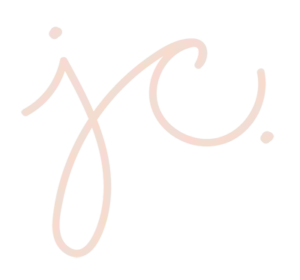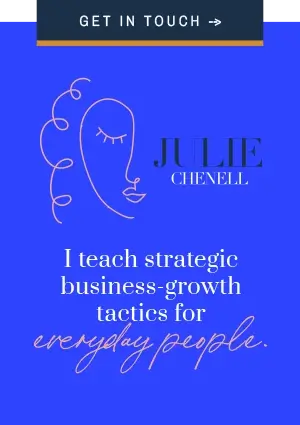Subscribe On:
Full Transcript:
Today I want to talk to you about something super cool. So I am sitting here, I am working on a presentation, I promised everyone in my new program, the Digital Gangsta that I would do a walkthrough of the first year in business with a new brand that I’ve been co-owning with Cathy Olson.
So some of you know that I run a brand called Funnel Gorgeous and we sell design templates and courses that combine both design and strategy, marketing strategy both. We started it in August of 2018, so we are officially in our one year anniversary. And I thought it would be super cool to show all my marketing students what we did, what we did right, what we did wrong.
So I’m sitting here working on it realizing the unintended consequence of doing this and how valuable it’s been for me. So I want to share with you why I think all of you after listening to this podcast should do exactly what we’re doing.
So first things first, I am peeling back and looking at gross revenue, expenses and profit. So just looking at the numbers from when we began in August to one year later, what did that look like? And then I’m going a little deeper and I’m saying, “Okay, but what did I actually sell, like product sales?” Now if you are a service provider you can look and you can go back to your clients and say, okay I sold this type of funnel or this type of ad or content management, and you can kind of get a feel for what your best selling service or product is.
So that was the other thing I was doing, looking through our different funnel designs, which one was our best selling. Of our courses, which course did better, Funnel Gorgeous or Webinar Gorgeous? And just sort of, kind of digging into the numbers of where all that revenue came from.
Then after that I went through a process where I started to explain what we did right. And this is a great exercise that everybody should do, because it forces you to focus in on all of your achievements and accomplishments. And there’s nothing that’s going to give you faster momentum than to look at what you’ve done well. So I went through and realized, holy cow, we did a lot of really cool things right, that now looking back you’re sort of trying to plan ahead, but you’re also using some of your instinct as you’re building your business.
And you know, when Funnel Gorgeous launched in August of 2018, it was not intended to be an entire company. It was just, “Hey Cathy has a business, I have a business. Let’s do a course together.” It was definitely what you would consider a JV Collab. So it morphed obviously, as we continued it, as we started to sell. So it’s really interesting to see sort of how the year unfolded when we realized, “Oh my gosh, this might actually be something more than just a product line. It might actually be a company.” So that sort of transitioned.
So we looked at the things we did right, and then even though its scary to do this, the what we could have done better kind of category, I have about six slides of the things I’m looking at, and I’m really sort of putting on my black hat and looking at our revenue and our numbers and saying, “Alright, what could we have done better?” And I know for a fact that because of, and this isn’t a time to judge yourself, but I know for us, both of us were running our own businesses, I was also working fulltime for Clickfunnels. So we had maybe 10-15 hours a month to dedicate to Funnel Gorgeous. So you could see where we were clearly, you know, didn’t have as much momentum.
The funny part about this activity of creating this presentation, creating this income report, looking at our revenue, our expenses, our profit margins, what we did right, what we could have done better, is all of the sudden, the clarity of where to go next is very obvious.
And Cathy and I had a big meeting last week and we talked about, “Where do we want to go next? What are the things we want to focus on?” And we have decent amount of clarity on it, but it all the sudden became so obvious as I was creating this presentation.
So IF would encourage you in your business, it’s august, so depending on when you’re listening to this podcast, so maybe it’s not August for you. But if you look at, and you take stock, and you retrace your steps, you might find that the fogginess that you have about what you should be doing now, will immediately lift when you retrace.
And you know, there is that saying, which I can’t remember the full saying now, but there are the people who live in the past, there are people who live in the future, and there are the people who live in the present. And you know, there are positives and negatives to all of that. The people who get stuck in the past, they tend to not be able to get over mistakes and failures, and they imagine things in the past, not actually as they were, but they idealize them, because hindsight is 20/20. So that’s the downside of looking in the past.
And then the people who are always looking forward, they tend to miss what’s happening in the present, they tend to not necessarily learn from their mistakes in the past, and they just kind of keep repeating them because they’re always so forward thinking.
And there are the people that only look at the present, they look at what’s right in front of them, which can be really good because it helps them enjoy the moment, but it also can be bad because they don’t necessarily know where they’re going. And they don’t necessarily, they’re not necessarily able to capture what they learned in the past.
And as a kid, I remember people talking about the whole saying, sort of, kind of converges on this idea that you should live in the moment. That you shouldn’t worry about the past and you shouldn’t worry about the future. But I think in business it’s not so simple. And I think that there is a really good argument for looking back. AndI would recommend if you are not doing it, or if you haven’t done it, that you sit down and you know, it may drudge up some fear and anxiety because you’re afraid that’s its some report card and you’re going to get an F, but if you kind of lean into that feeling and do it anyway, you’re going to get insights that you wouldn’t get otherwise.
And likewise, I would argue that your ability to plan the future is only as good as how well you understand the past. So today, right now as you’re listening to this, you’re in the present, I challenge you to take this present moment, to do the activity of retracing so that you can plan for the future better. And you know, it’s work, and I think I never would have done it if I wasn’t going to present it. It was so interesting thinking about it from a presentation style, putting it on the slide deck. But I’m almost in that action, presenting it back to myself, and I’m becoming the student of my own actions. Because I’m looking at it, and it’s like, okay you can look at a profit and loss statement or balance sheet or whatever, and you can say, “Alright well, those are the numbers.” But when you have to then put it into a presentation, you have to actually extract meaning from it, because nobody’s going to sit and listen to you read off a bunch of numbers. They want to understand why does it matter and why is it meaningful to them in their business?
So in the act of actually explaining that on the slides, I am teaching myself. So short podcast today. If you haven’t done it, go back and retrace your steps, put it on a slide deck, and teach yourself what you did awesomely well in your business and what you could do better. And find that it’s going to help you plan forward with more strategic insight than you ever would have had otherwise. I appreciate you all, talk to you soon.









0 Comments